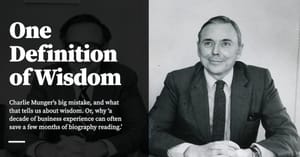What a question about growth marketing tells us about expertise — and why expert-novice differences are so useful to probe if you're a practitioner.
One of the nice things about reading a lot of expertise research is that you learn to pay very special attention to questions of the form “what differentiates a top <x> from one who is merely good?” So, for instance, you should listen carefully when a high performance salesperson is asked “what differentiates a top salesperson from one who is merely good?” and “what would an expert do here that a novice wouldn’t?” and also “what mistake would you have made here, were you less experienced?”
The technical term for these questions is that you are ‘probing for expert-novice differences’, but the overall approach is known as the ‘expert-novice research paradigm’ within the expertise literature. There are some criticisms levelled against this research approach — which we’ll get to in a bit — but it is, broadly speaking, a highly effective tool for getting at the heart of expertise.
I want to talk a little about why this approach works, and why you might want to ask these questions. To do this, I’ll have to explain the nature of expertise in a specific skill domain.
I’ll illustrate with one in-depth example.
About a week ago, I was listening to the Acquired LP podcast, when I heard host Ben Gilbert ask pricing expert Patrick Campbell: “For someone who’s never been around an A-plus growth person, and they kinda feel like a lot of people that they’ve worked with are good … how do you know?”
Originally published , last updated .
This article is part of the Expertise Acceleration topic cluster. Read more from this topic here→





